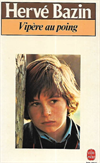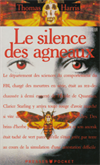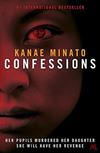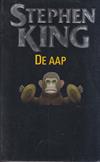Samurai Shortstop
Registered by  GoryDetails
GoryDetails of Nashua, New Hampshire USA on 12/2/2019
of Nashua, New Hampshire USA on 12/2/2019
 This Book is Currently in the Wild!
This Book is Currently in the Wild!
 GoryDetails
GoryDetails of Nashua, New Hampshire USA on 12/2/2019
of Nashua, New Hampshire USA on 12/2/2019 This Book is Currently in the Wild!
This Book is Currently in the Wild!
1 journaler for this copy...
I got this ex-library softcover from Better World Books (delivered after a heavy snowstorm!), and was glad of another release copy.
From the dramatic opening line ("Toyo watched carefully as his uncle prepared to kill himself") I knew I was in for something unusual. The story's set in 1890 Tokyo, at a time when the emperor has decided to force the country into adopting Western ways in hopes of improving Japan's position in the world, so many of the traditional ways are not only being discouraged but, in some cases, outlawed. Toyo's uncle was among those who opposed the change, and his ritual suicide (seppuku) is his choice over being jailed or executed as a rebel. Much of the story centers on Toyo's attempts to understand his uncle's reasoning and to cope with his own anger, sorrow, and horror.
From that stark, deadly opening, the story shifts into Toyo's experiences at his new school, which include what seems to modern eyes an over-the-top amount of hazing, sufficiently frightening and violent to leave its victims suffering sleep-deprivation and, in some cases, actual injuries. (I give the author full marks here for managing to keep Toyo's views in line with a boy of his age brought up in his class and culture, while allowing him just enough questioning of authority to make him sympathetic to Western eyes.)
From Toyo's viewpoint, the main advantage to getting through the hazing is that now he's considered eligible to join the school's baseball team (he plays shortstop, hence the title). The most surprising element of this story for me was the early popularity of baseball in Japan; I had to look it up to make myself believe that a Japanese high school in 1890 would actually be fielding a baseball team at all, never mind being quite manic about it! But it turns out to be true - as do some of the descriptions of the period rules, and of games played. Very, very cool!
In addition to his baseball and his classes, Toyo has something else to learn; his father has decided to teach him the way of bushido, by way of explaining the reasons for his uncle's death (and, as his father suggests, for his own). There are some great scenes here between a father and son who both desperately want to be able to communicate but who are so disconnected that it doesn't seem possible. Toyo agrees to learn, but "was there any way to learn the way of the warrior and still save his father's life?"
I was charmed at the way the bushido lessons (which began with zen meditation training, much to Toyo's surprise, but which eventually included grueling, agonizing stints at sword-forms and actual combat with his father) fit in with the baseball training - and was even more delighted when Toyo himself began to realize this and make use of it.
Despite the grim opening and the often-brutal hazing and training, there's a lot of humor in the story, many new friendships for Toyo, and some wonderfully triumphant moments (on the ball field and off). Toyo himself was a very sympathetic character, and he discovers that many of his schoolmates - and his father - have more sides to them than he could see at first. [His father learns a few things as well before the end of the story!]
I can imagine some interesting discussions based on this book, as it manages to present certain types of group-think and classism as a positive thing, while also showing the dark side of too-stringent prejudice - and it uses baseball as the analogue, since the game requires sacrificing one's own goals for those of the team, yet also rewards individual effort on occasion. [The use of zen meditation as a baseball training exercise also charmed me - and when I saw it in use in the lovely baseball-themed anime Big Windup I thought of this book and beamed!]
The story climaxes with a game between Toyo's high school team and a group of American players (all adults and some professional players), with Japanese/American relations on the line - and what a game it turns out to be!
The author's notes at the end of the book are worth reading; the book's origins are explained, and the author lets us know which incidents from the story were based in fact (many more than I would have guessed!). There's a bibliography as well, a nice touch.
To close, I'll quote a haiku from the front of the book, written by Japanese baseball player and poet Shiki Masaoka in 1890:
"The secret to catching a ball
Lies with the willow
Swaying in the wind."
[I've enjoyed other Gratz books as well, including The Brooklyn Nine, a fictionalized baseball-through-the-years novel, and Fantasy Baseball, a story about a boy who finds himself playing baseball with characters from fiction. There's a brief TV Tropes page on the novel.]
From the dramatic opening line ("Toyo watched carefully as his uncle prepared to kill himself") I knew I was in for something unusual. The story's set in 1890 Tokyo, at a time when the emperor has decided to force the country into adopting Western ways in hopes of improving Japan's position in the world, so many of the traditional ways are not only being discouraged but, in some cases, outlawed. Toyo's uncle was among those who opposed the change, and his ritual suicide (seppuku) is his choice over being jailed or executed as a rebel. Much of the story centers on Toyo's attempts to understand his uncle's reasoning and to cope with his own anger, sorrow, and horror.
From that stark, deadly opening, the story shifts into Toyo's experiences at his new school, which include what seems to modern eyes an over-the-top amount of hazing, sufficiently frightening and violent to leave its victims suffering sleep-deprivation and, in some cases, actual injuries. (I give the author full marks here for managing to keep Toyo's views in line with a boy of his age brought up in his class and culture, while allowing him just enough questioning of authority to make him sympathetic to Western eyes.)
From Toyo's viewpoint, the main advantage to getting through the hazing is that now he's considered eligible to join the school's baseball team (he plays shortstop, hence the title). The most surprising element of this story for me was the early popularity of baseball in Japan; I had to look it up to make myself believe that a Japanese high school in 1890 would actually be fielding a baseball team at all, never mind being quite manic about it! But it turns out to be true - as do some of the descriptions of the period rules, and of games played. Very, very cool!
In addition to his baseball and his classes, Toyo has something else to learn; his father has decided to teach him the way of bushido, by way of explaining the reasons for his uncle's death (and, as his father suggests, for his own). There are some great scenes here between a father and son who both desperately want to be able to communicate but who are so disconnected that it doesn't seem possible. Toyo agrees to learn, but "was there any way to learn the way of the warrior and still save his father's life?"
I was charmed at the way the bushido lessons (which began with zen meditation training, much to Toyo's surprise, but which eventually included grueling, agonizing stints at sword-forms and actual combat with his father) fit in with the baseball training - and was even more delighted when Toyo himself began to realize this and make use of it.
Despite the grim opening and the often-brutal hazing and training, there's a lot of humor in the story, many new friendships for Toyo, and some wonderfully triumphant moments (on the ball field and off). Toyo himself was a very sympathetic character, and he discovers that many of his schoolmates - and his father - have more sides to them than he could see at first. [His father learns a few things as well before the end of the story!]
I can imagine some interesting discussions based on this book, as it manages to present certain types of group-think and classism as a positive thing, while also showing the dark side of too-stringent prejudice - and it uses baseball as the analogue, since the game requires sacrificing one's own goals for those of the team, yet also rewards individual effort on occasion. [The use of zen meditation as a baseball training exercise also charmed me - and when I saw it in use in the lovely baseball-themed anime Big Windup I thought of this book and beamed!]
The story climaxes with a game between Toyo's high school team and a group of American players (all adults and some professional players), with Japanese/American relations on the line - and what a game it turns out to be!
The author's notes at the end of the book are worth reading; the book's origins are explained, and the author lets us know which incidents from the story were based in fact (many more than I would have guessed!). There's a bibliography as well, a nice touch.
To close, I'll quote a haiku from the front of the book, written by Japanese baseball player and poet Shiki Masaoka in 1890:
"The secret to catching a ball
Lies with the willow
Swaying in the wind."
[I've enjoyed other Gratz books as well, including The Brooklyn Nine, a fictionalized baseball-through-the-years novel, and Fantasy Baseball, a story about a boy who finds himself playing baseball with characters from fiction. There's a brief TV Tropes page on the novel.]
Journal Entry 2 by  GoryDetails
GoryDetails at LFL - Atherton Park in Nashua, New Hampshire USA on Friday, December 6, 2019
at LFL - Atherton Park in Nashua, New Hampshire USA on Friday, December 6, 2019
 GoryDetails
GoryDetails at LFL - Atherton Park in Nashua, New Hampshire USA on Friday, December 6, 2019
at LFL - Atherton Park in Nashua, New Hampshire USA on Friday, December 6, 2019
Released 4 yrs ago (12/6/2019 UTC) at LFL - Atherton Park in Nashua, New Hampshire USA
WILD RELEASE NOTES:
 I braved the snowdrifts to drop off this book at the Little Free Library today. Hope someone enjoys the book!
I braved the snowdrifts to drop off this book at the Little Free Library today. Hope someone enjoys the book! [See other recent releases in NH here.]
*** Released for the 2019 What's In A Name Release Challenge, for the embedded "Sam" in the title. ***














